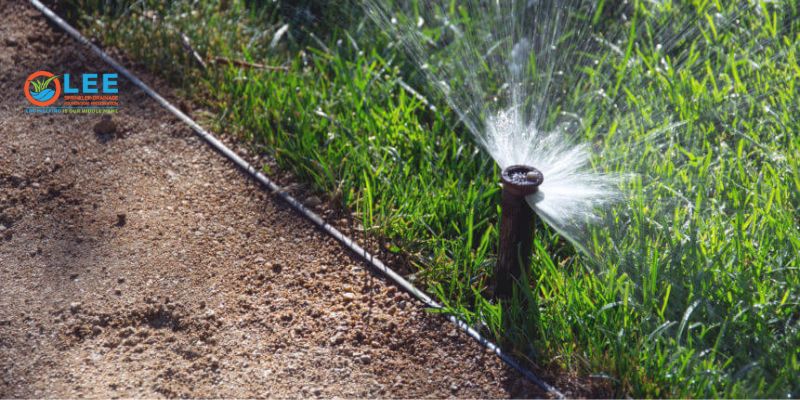Watering foundations might not be the most glamorous topic, but it’s essential to maintaining the structural integrity of buildings. A solid foundation is the bedrock of any structure, quite literally. It supports everything above it, and proper care is crucial for longevity. How we water the area around a foundation significantly impacts its stability and the overall health of the building. So, let’s dive into this seemingly mundane but vital aspect of construction and maintenance to uncover some interesting and essential facts about foundation watering.
The Importance of Foundation Watering
The proper maintenance of a building’s foundation is paramount. Irrespective of the construction materials used, whether concrete, stone, or other forms, foundations are susceptible to various environmental factors. Changes in weather, soil moisture, and even the age of the structure all play crucial roles in the foundation’s health.
1. Soil Composition Matters
The soil around a foundation can directly affect its stability. Different soil types have varying water retention capacities. Clay soils, for instance, tend to expand and contract more significantly with changes in moisture levels, which can exert pressure on the foundation, potentially causing cracks or other damage. In contrast, sandy soils drain water more readily but might not offer the best support.
2. Proper Drainage Is Key

One often overlooked factor in foundation maintenance is the importance of proper drainage. Poor drainage can lead to excessive moisture around the foundation, which can cause erosion or even compromise the foundation’s integrity. A well-designed drainage system ensures excess water is directed away from the foundation.
3. Consistent Moisture Levels
Maintaining consistent moisture levels around a foundation is crucial. Fluctuating water levels in the soil can lead to the expansion and contraction of the soil, which can cause stress on the foundation. A consistent watering routine can help stabilize the soil and prevent significant shifts that might affect the foundation.
4. Overwatering Risks
While consistent moisture is essential, overwatering can be as damaging as under-watering. Excessive moisture can saturate the soil, leading to soil erosion, weakening of the foundation’s support, and even potential structural damage. It’s a delicate balance that needs to be maintained.
5. Impact of Weather Conditions
The weather plays a significant role in foundation watering. During drought or extreme heat periods, the soil around the foundation can dry out, potentially causing the soil to contract and pull away from the foundation. This can result in shifts and cracks. On the other hand, excessive rain can oversaturate the soil, leading to similar issues.
6. Seasonal Adjustments
Foundation watering isn’t a one-size-fits-all task. It requires adjustments based on the seasons. More frequent watering might be necessary in hot, dry seasons to maintain stable moisture levels. In cooler or wetter seasons, watering might need to be reduced to prevent oversaturation of the soil.
7. Techniques for Effective Foundation Watering
Various techniques are employed to ensure effective foundation watering. Drip irrigation, soaker hoses, and proper landscaping to promote natural drainage are just a few methods used to maintain optimal moisture levels without risking overwatering.
8. Impact of Trees and Vegetation
Trees and other vegetation near a foundation can significantly affect foundation watering. While trees can help absorb excess moisture and prevent soil erosion, their roots can also absorb moisture from the soil, potentially leading to inconsistent moisture levels around the foundation.
9. Foundation Repair and Watering
Proper watering remains essential during the repair process in cases where damage has occurred, such as the development of cracks. Keeping the soil around the foundation at an optimal moisture level can aid in stabilizing the structure during repair work.
10. Technological Advances in Foundation Watering
Advancements in technology have introduced smart irrigation systems that can regulate moisture levels around a foundation more precisely. These systems use sensors and automated controls to adjust watering based on real-time moisture measurements, reducing the risk of overwatering or underwatering.
Why You Should Pay Close Attention to Foundation Watering

Paying close attention to foundation watering is crucial for several reasons. Here are some key points to emphasize why it’s essential:
1. Structural Integrity: The foundation is the bedrock of any building. Proper watering helps maintain the stability of the soil around it, reducing the risk of shifts or settling that could compromise the structure’s stability.
2. Prevention of Damage: Inconsistent moisture levels can lead to soil expansion and contraction, causing stress on the foundation and resulting in cracks or damage. Monitoring and adjusting watering routines can prevent these issues.
3. Longevity of the Building: A well-maintained foundation prolongs the life of a building. By preventing damage and ensuring stability, you’re investing in the long-term health of the structure.
4. Cost-effectiveness: Addressing foundation issues due to poor watering can be incredibly costly. Regular attention to foundation watering can save you from expensive repairs or potential reconstruction.
5. Environmental Impact: Overwatering can damage the foundation and lead to waste. Being mindful of watering practices minimizes water waste and contributes to environmental conservation.
6. Impact on Property Value: A well-maintained foundation significantly impacts property value. Regular, appropriate watering preserves the structural integrity, making the property more attractive to potential buyers.
7. Safety Concerns: Foundation issues can pose safety risks. Cracks or shifts in the foundation can lead to further structural damage, potentially endangering occupants. Maintaining a solid foundation through proper watering mitigates these risks.
8. Adverse Weather Effects: Extreme weather conditions, such as droughts or heavy rainfall, can significantly impact the foundation. Regular monitoring and adjustments to watering routines can counteract these effects.
9. Maintenance of Aesthetics: Beyond structural concerns, foundation issues can affect the overall look of a property. Cracks or uneven settling can detract from the visual appeal. Proper watering helps preserve the aesthetic of the building.
10. Peace of Mind: Consistent attention to foundation watering provides peace of mind, knowing that the structural base of your building is being cared for, reducing the stress of potential future problems.
Wrapping Up
In conclusion, foundation watering might seem like a simple task, but it plays a critical role in maintaining the integrity of a building. It’s a delicate balance between providing adequate moisture for soil stability and preventing excessive water that could lead to erosion and structural damage. Understanding the soil, local weather patterns, and employing appropriate watering techniques is vital to ensuring the longevity of any structure’s foundation.

